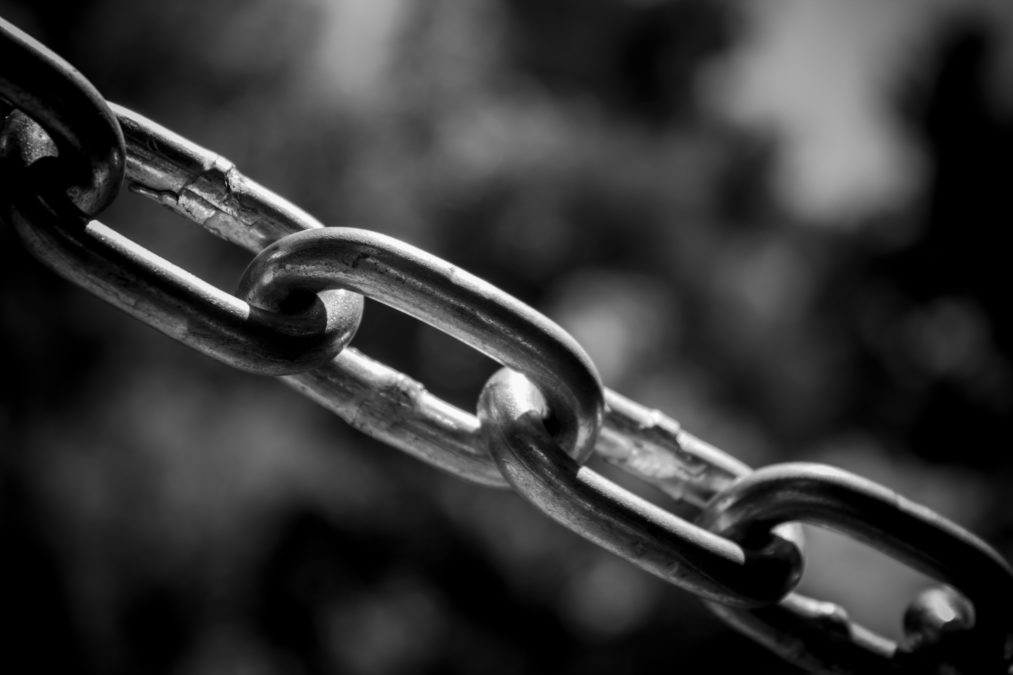Blockchain is not just confined to the worlds of cryptocurrency and finance. As businesses aim to build stronger transparency and trust with their customers, and boost security measures, blockchain is becoming integral to these processes. According to Statista, blockchain is flourishing and is expected to reach $2.3 billion in market value by 2021. A large part of this growth is in blockchain’s transferrable ability to impact verticals outside of finance, and one interesting example is how it is set to transform the supply chain discipline.
If we imagine an item on a supermarket shelf, questions will be asked as to how it was produced, which farm it was grown on, and what was its route to the store. Through blockchain technology, business can quickly track this entire process from the time it was sown to when it reaches the store shelves.
Blockchain will boost visibility and trust to the supply chain – and use cases are already being trialed highlighting the benefits of this. With any disruptive technology, there is a natural discomfort and resistance, but this is also paving the way to both curiosity and consideration.
Don’t let blockchain hype become your excuse for inertia – blockchain supply chain can ensure trust
Revolutionising supply chains through trust
If business is about creating customer value, then the supply chain is about delivering that value to the customer in the most efficient and effective manner.
If we take the server industry as an example, large organisations will tend to work with several component manufacturers and suppliers. Agreements are made with one another to ensure transparency, visibility, and accountability for the business transacted, while a layer of trust is added on top to ensure all parties follow the terms of our agreement. Trust is integral in ensuring the efficiency and effectiveness of a supply chain.
The beauty of blockchain technology is in its ability to strengthen the supply chain by combining trust with security, enabling better asset management combined with enforced reliability, and optimising manual work.
The ethics of blockchain
There are other benefits to society at large. For example, in the computer industry, the use of child labour by component manufacturers is a concern. The introduction of blockchain could have resolved this problem effectively long ago.
If it is clearly stipulated in a blockchain contract that no products should be produced using any form of child labor, blockchain eliminates all chances of overruling this condition. It makes it mandatory for a supplier to prove that children were not employed in the process. With blockchain, we can ensure our supply chains, products and services are indeed ethical.
When does integrating blockchain technology make business sense?
Securing your supply chain
In light of recent regulatory changes, data transparency and upholding this information securely is of critical importance. Legislation such as GDPR has put this in the spotlight, while at the same time, given more customers more control over their personal data than ever before. This has meant that every party across the supply chain must ensure to have the highest security protocols to ensure the safeguard of data, while ensuring customer data or request are managed accurately and timely.
Blockchain technology is helping address this very issue by serving as a robust and secure tool for the supply chain. While no security measure is entirely fail-proof, blockchain is built to ensure data exchanges cannot be erased or adapted without leaving a record, making it very difficult to hack. It is also excellent at controlling information and avoiding duplication, which if you consider the amount of people involved across the supply chain, is an ideal measure to implement.
Taking the server business again as an example, people want to know where their servers were built, understand what components are in those servers and how those components were manufactured. What blockchain does is wrap business and customer information in a security blanket so that no one can hack, alter or destroy it. If a customer wants to check it after 20 years, the integrity of the information will still be intact and easily accessible.
A guide to blockchain-as-a-service (BaaS) for CTOs and IT leaders
Beginning your blockchain journey
To get started with blockchain, companies must be nimble and receptive to adopting new technology. Bureaucracy makes decision-making tedious and ineffective. More than the technology itself, it’s people’s attitude that can often be the biggest hurdles to overcome.
There must be, with any new technology, a strong business case for adopting blockchain in order to solve problems for your supply chain organisation. Is it efficiency or transparency or something else? Like any technology intervention, if there is no clear purpose, perhaps it is not yet necessary for your company, and something that should be readdressed at a different point in the adoption process.
The next step is to find partners and blockchain vendors who want to explore the advantages with you, even if that is for a proof-of-concept (PoC) execution. There are several companies out there but it’s important to evaluate which ones can help you with your specific requirements. The blockchain PoC should answer questions around what’s working and what’s not, and most importantly, how the process differs if blockchain was eliminated from the picture?
Every organisation will undoubtedly be at different stages in its blockchain journey. While some may not be ready to adopt currently, continuous advances in blockchain will only boost the benefits for organisations, and in turn, advance the speed of adoption of the technology. With so much issues around data and customer transparency, blockchain is pivotal across all supply chain disciplines in addressing these issues and putting trust firmly back into the centre of the discussion.








